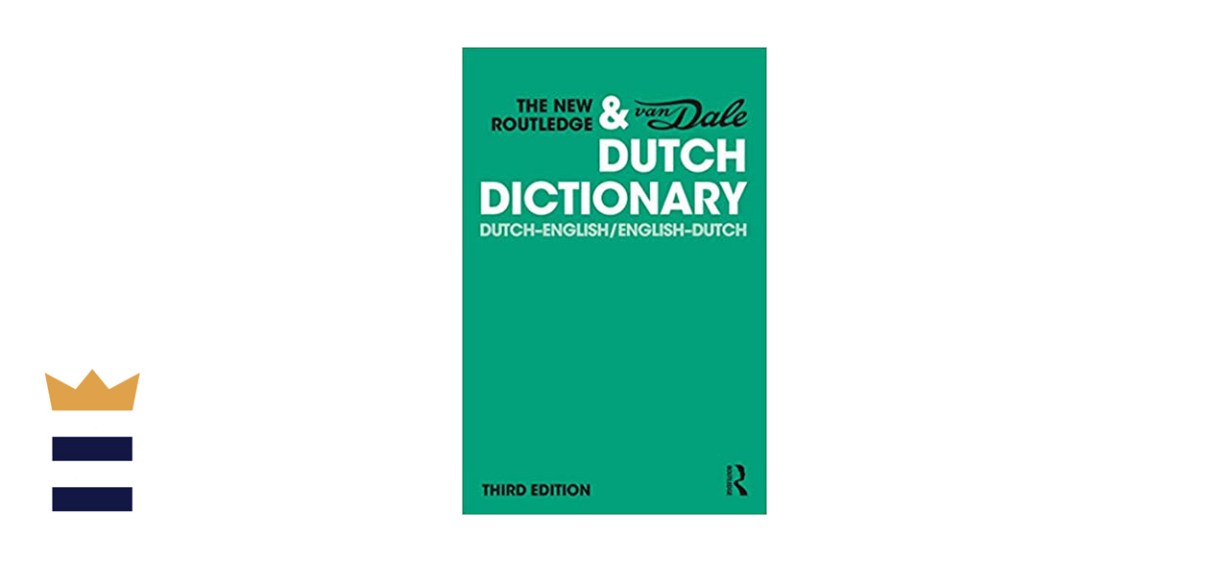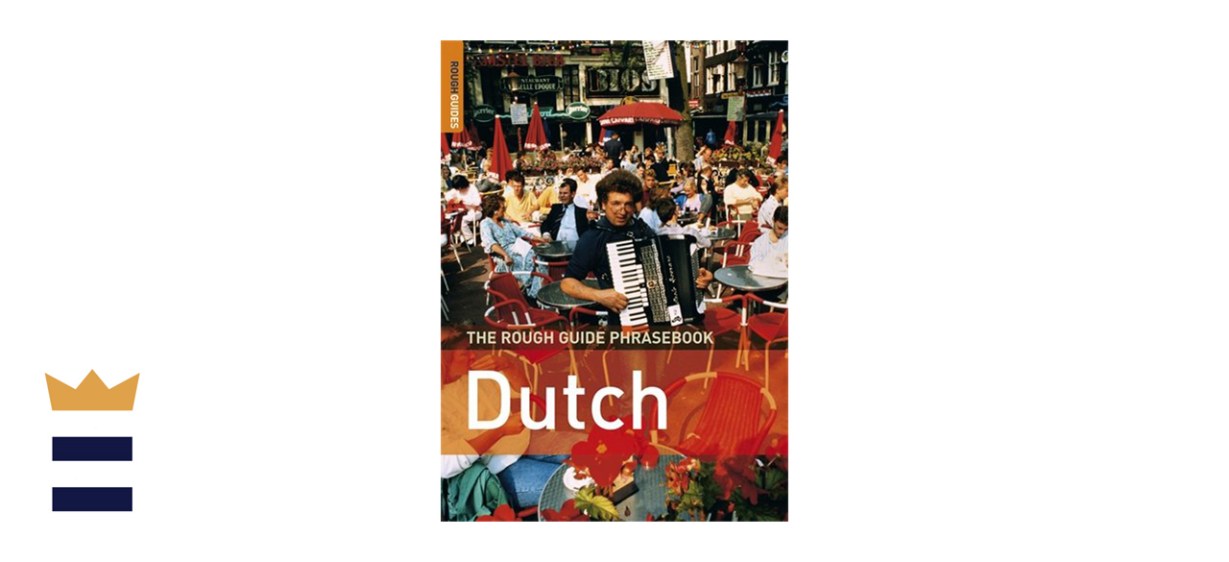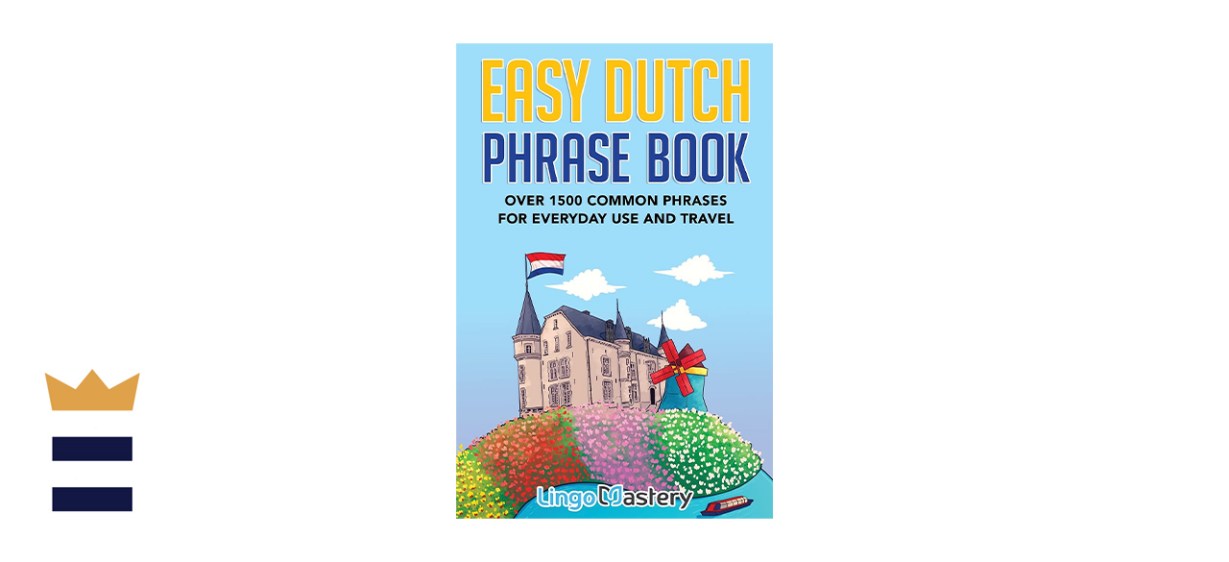Which English to Dutch dictionary is best?
With just 60,000 words, Dutch is often promoted as one of the easiest languages for native English speakers to learn. Heavily associated with Germanic languages, it features some of the longest compound words and many complicated pronunciations. For that reason, when studying this language, you’ll need a good English to Dutch dictionary.
When you’re ready to get serious about learning Dutch, there’s only one dictionary you need: The New Routledge & Van Dale Dutch Dictionary: Dutch-English/English-Dutch. With over 33,000 words and phrases, it will help you increase your vocabulary quickly.
What to know before you buy an English to Dutch dictionary
Type of dictionary
There is more than one type of dictionary format to choose from, each with its own pros and cons.
- Electronic dictionaries are compact and easy to carry with you, but you’ll need either spare batteries or a power source to ensure it doesn’t die when you need it most. And these are often static — you’ll need to buy an update as language changes or words are added.
- Dictionaries available in an app are similar to an electronic dictionary but may have other features that are helpful in language learning (for instance, interactive features and native pronunciations). The downside of an app is that you’ll need a powered device, and apps connected to an internet signal may not be 100% reliable.
- Print dictionaries are an the standby. They don’t require power and can be pocket-sized and portable. They need to be replaced as language evolves, though, and there are no auditory aids to pronunciation.
Goals for language learning
You’ll need to identify your language learning goals to select the best English to Dutch dictionary for you. Are you looking to gain fluency? To hold a simple conversation? Survive a quick weekend in a Dutch-speaking country?
There are dictionaries that specialize in each of these goals and can help you reach them faster.
Size
If you need a dictionary primarily for travel, you’ll want a pocket dictionary. However, for home study or as an addition to your home library, a large hardcover reference is better.
What to look for in a quality English to Dutch dictionary
Companion audio
Companion audio helps you train your ear to the language you’re learning. If the dictionary you select comes with available audio, make sure it features native Dutch speakers. This gives you a better idea of exactly how the language should sound when you speak it.
Simple, clear definitions
Nothing is more frustrating than having to look up words in a definition to understand the definition. Look for dictionaries with simple, easy-to-understand definitions.
Grammar help
Building fluency requires understanding grammar. Even pocket dictionaries have short grammar guides that help you learn the rules for faster language acquisition.
Pictures
Basic English to Dutch dictionaries may include pictures to illustrate difficult concepts. These are generally reserved for younger language learners, but some apps also use illustrations.
Conversation help
Short, simple conversations help learners navigate simple conversations. Introductions and ordering in restaurants are common in many English to Dutch dictionaries.
How much you can expect to spend on an English to Dutch dictionary
Depending on the size and type of dictionary, expect to spend as little as $5 and as much as $150.
English to Dutch dictionary FAQ
Is Dutch an easy language to learn?
A. Although Dutch shares some similarities with English (and has fewer words), the pronunciation is very challenging. For this reason, Dutch is difficult to learn. This is compounded by the fact that many Dutch people in the Netherlands are fluent in English and prefer to speak English around native speakers. It can be hard to find a native Dutch speaker to practice with.
How long does learning Dutch take?
A. The time frame varies, but the Foreign Service Institute of the United States says that it takes about six months of intensive study (totaling 600 hours) to become fluent in Dutch.
Can you learn a language just from using a dictionary?
A. No. A language’s lexicon — its words — Is just one part. While you can certainly use a dictionary to expand your vocabulary and understand some basics, it’s best to use a variety of resources for language learning, including a dictionary, conversational tapes, reference books and interactions with native speakers.
What are the best English to Dutch dictionaries to buy?
Top English to Dutch dictionary
The New Routledge & Van Dale Dutch Dictionary: Dutch-English/English-Dutch
What you need to know: Navigate across western Europe with this handy multilingual phrasebook and dictionary.
What you’ll love: It’s a two-way dictionary with over 33,000 entries that include both colloquial and idiomatic phrases. The layout is clear and easy to use, and there are phonetic pronunciation aids.
What you should consider: This is extensive but expensive.
Where to buy: Sold by Amazon
Top English to Dutch dictionary for the money
The Rough Guide to Dutch Dictionary Phrasebook 3
What you need to know: This book was written to help you navigate everyday life in the Netherlands.
What you’ll love: This phrasebook was recorded by native speakers. It’s pocket-sized and has both Dutch to English and English to Dutch translations. Download the audio files to hear exact pronunciations. It also has a grammar section.
What you should consider: It’s not very in-depth and is only useful in specific scenarios.
Where to buy: Sold by Amazon
Worth checking out
Lingo Mastery Easy Dutch Phrase Book
What you need to know: Use this book to help you quickly learn conversational Dutch.
What you’ll love: It features over 1,500 common phrases and their translation. It has phonetic pronunciation keys, plus a detailed explanation of how to pronounce single vowels and consonants (and the combinations that are most common).
What you should consider: Some people were confused by the inclusion of pronunciation guides.
Where to buy: Sold by Amazon
Sign up here to receive the BestReviews weekly newsletter for useful advice on new products and noteworthy deals.
Suzannah Kolbeck writes for BestReviews. BestReviews has helped millions of consumers simplify their purchasing decisions, saving them time and money.
Copyright 2022 BestReviews, a Nexstar company. All rights reserved.






